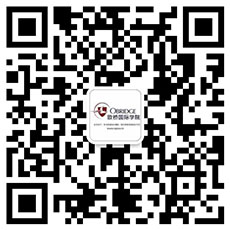When I first read the claim in an article that ‘boredom breeds creativity,’ I was fascinated. I wish I had known this when I was young and bored, and my mother told me: “Find something constructive to do.” Whoever would have imagined that what my mother thought was malaise could actually be productive? Certainly not my mother and certainly not me, at least until I started thinking about it, when I was bored! ‘New Tech City,’ a radio program in New York, issued a challenge, the “Bored and Brilliant Project: Delete that App.” ‘New Tech City’ highlights trends and emerging technology issues. But this WNYC program is not the only group advocating boredom.
In an article on the BBC website entitled “Children should be allowed to get bored,” (http://www.bbc.com/news/education-21895704) the claim is made that boredom fosters creativity because it allows, or forces the bored individual to use their imagination. Think of all the times when you were young—depending on how old you are—and you received a present that was supposed to stimulate you, but it only gathered dust in the corner. Then think of the times when you played with a cardboard box and invented a spaceship that took you to another planet, even if the other planet was a piece of paper on the other side of the room.
An article in the ‘Harvard Business Review’ (https://hbr.org/2014/09/the-creative-benefits-of-boredom/) described experiments conducted by researchers in a study in England, where the group performing the most boring and repetitive tasks found the most creative uses for a pair of plastic cups.
I have done a lot of flying, though not in spaceships, in the past two years, something more than 110,000 miles, enough to have Premier Gold status two years in a row. Before I read these articles and listened to this radio program I began thinking how much time I sat in an airplane seat and in airport lounges. I watched how many of my fellow passengers unwrapped their headsets, turned on the ever-present screens and sat transfixed for hours. (I didn’t watch them for hours; I just noticed that they were in the same position, even after I fell asleep and woke up.)
I began to appreciate the notion of boredom when I found myself sitting in my seat without any gadgets, headphones, or even a book. I would place a small notebook in the seatback pocket and scrawl some entries on different issues. I wrote some things about ‘Project Based Learning,’ about new course offerings and charter school designs; I even worked on a satirical novel about Russia. I am not claiming great innovation or any great invention, but I am advancing that time without electronic devices and outside stimulation can lead to reflective thought; this reflective thought could easily be called creative.
The whole notion of boredom might seem counter-intuitive to the process of schooling and education. However, I can imagine students sitting with a piece of paper—without any electronic devices—AFTER they finish all their online work—perhaps discovering something they never knew before! Perhaps they could think of a career they never imagined, a new way to approach a task, or something without any apparent use in the present.
Here are a few of the things that I consider boring, but also stimulate me to think: commuting on Long Island; sitting in a cramped seat on an airplane; exercising on the elliptical; watching a bad movie. My mind starts to wander during all of these activities.
I want to think about how to best apply this research on boredom to the school setting. I guess I need to do something very boring to get a few ideas. I’ll keep you informed when something occurs!


